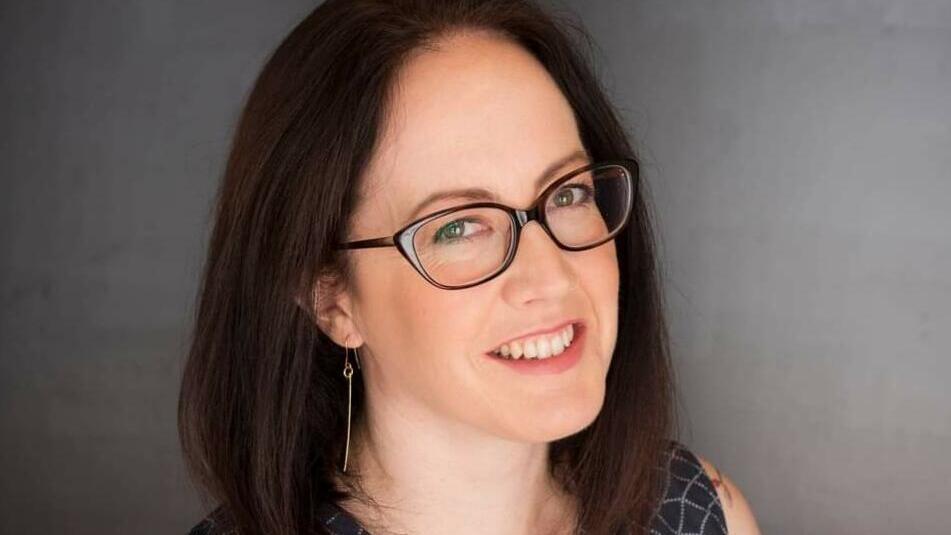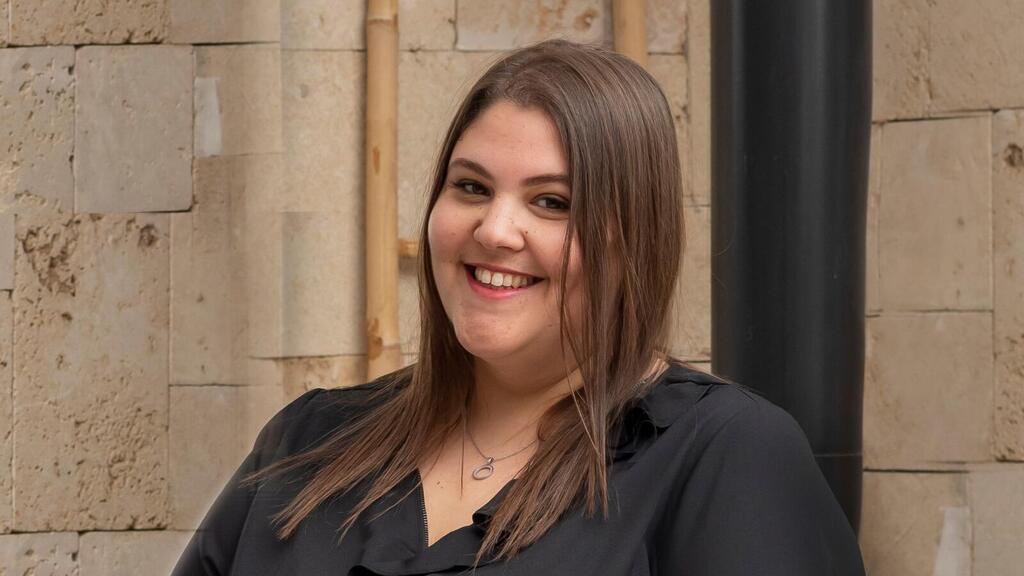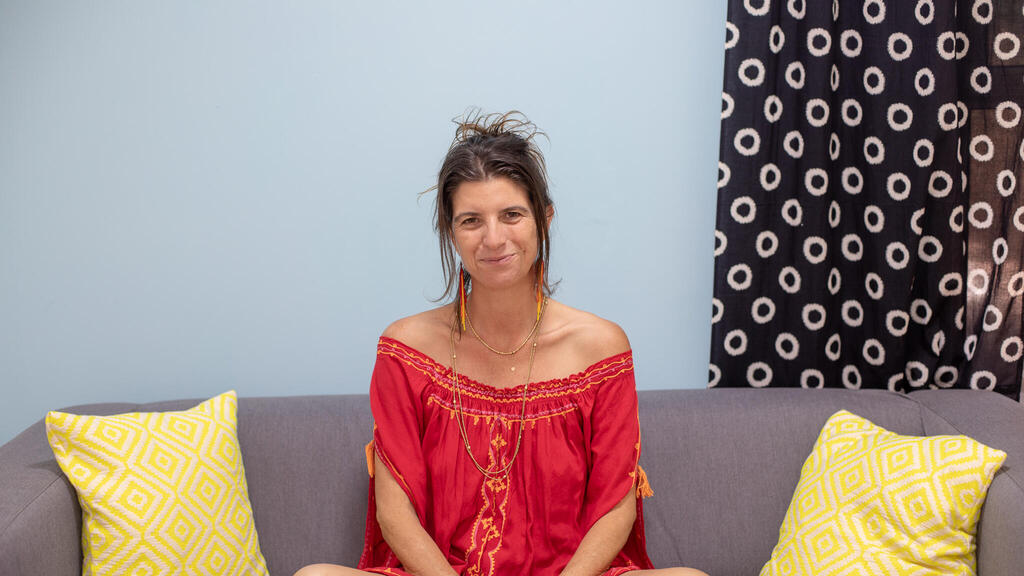Getting your Trinity Audio player ready...
“Infidelity is so rampant that in practice people aren’t monogamous”. In this single sentence, Racheli Tal, social worker and director and partner at the Center for Alternative Sexuality and Sexuality and Gender Studies lecturer at Ben Gurion University, dissipates the notion that most couples still conduct “regular” monogamous relationships.
Monogamy isn’t going anywhere though. Even Tal agrees, but explains that a plethora of further options have blossomed – a whole world of a-monogamy, and no, not just for hippie-types.
“A-monogamy is a spectrum of ways of conducting sexual relations and relationships – connected by the common denominator of the absence of sexual exclusivity,” explains Tal.
“Under this umbrella, you can have polyamory, which is loving and being loved by multiple partners i.e., more than one relationship. You can also have people who are 'monogamish' whereby couples live monogamously for most of the time but they have all sorts of arrangements – like it’s allowed if it’s overseas, or 'don’t ask, don’t tell.'”
“There’s the swinger scene, involving partner-swapping or having further people in bed. There are open relationships, agreeing to additional partners, but just for sex. Some people live in 'polycules' - groups of people conducting romantic and sexual relationships among themselves.
"Within the group, not everyone has to be in romantic or sexual relationships with everyone else, but rather it’s a group of people joined together as a collective in which they can all meet up for a picnic with the children.
“In rare cases, more than two partners live in a home together in a kind of commune – but this is marginal. The construct of two people living together in the same house, at least to the outside appearing monogamous, is still very much dominant.”
It’s more common than we’d think?
“Definitely. We don’t have data from Israel, but in America, research suggest that 5%-6% have experimented with this kind of relationship. Israel’s largest a-monogamy Facebook group boasts 12,000 members. I think that most a-monogamists hail from Israel’s upper-middle classes. It requires a certain degree of financial stability and enough free time. It’s more prevalent among liberal, educated people, but it’s not only the “hippie-types” living in Tantra communities. You also get doctors, high tech workers, lawyers, teachers, kindergarten teachers and librarians – every profession you can think of.”
So why don’t we hear about them? Why does it have such a low profile?
“Firstly, sometimes, they come up against people saying things like ‘so you cheat by agreement.’ Although sex outside the couple relationship, due to some kind of sacred contract, is considered people still ask questions like ‘Why can’t you just be like everyone else and cheat?’ – it’s hypocritical. I think people have a hard time accepting the idea that we have intimate relationships with more than one person. It’s considered immoral. There are a lot of antiquated ideas, mainly connected to religion, that sex has to be within the family.”
What does it do to a couple’s relationship?
“Research infers that communication between the couple is better in a-monogamic relationships. You have to talk about things because it brings up a lot of emotions and challenges. If you don’t talk, you won’t make it. It’s harder to suppress things in an a-monogamic relationship. Couples say that they thought were talking about everything while the relationship was monogamic, but after making their relationship was open, they realized that they hadn’t been talking about anything at all. There’s an old piece of research from 1986 showing that, over time, there’s no difference in the divorce rate between monogamic and a-monogamic couples. But that research hasn’t been updated to present day circumstances.”
Is a-monogamy a relatively modern phenomenon?
“On a timeline of social processes, it’s connected to three developments that have occurred simultaneously.
“Firstly, Capitalism, or Neoliberalism. In the West, we have a global free market where we can replace our wardrobe with each changing season, get a new car every three years, move home whenever we like – we live in a society in which, if something gets old or doesn’t work, we can get a new one. We want change. We want variety.
“The idea of living with the same person forever and having the same sex your whole life, is incompatible with this lifestyle. Capitalism done a lot to develop our sexuality. There are on-line courses, sex toys and porn so people better understand their sexual options and may feel that what they have at home isn’t what’s best for them. Maybe you can have something different.”
“The second element is Feminism: Women today have more purchasing power, more say at home and more independence within marriage. Women understand that once the children are born and they have a good career going and they’re earning more money, that are less financially dependent on their husbands. I don’t have official statistics, but there’s almost professional consensus that when couples aged 35-40 open up their marriages, it’s usually initiated by the woman.”
What’s the third social development?
“Equal rights for the LGBTQ community and the democratization of sexuality. The understanding that there is a broad range of sexuality, and that they’re all OK. In the past, sexuality that wasn’t heterosexual, monogamic, ‘vanilla’ was officially categorized as a mental disorder by the Diagnostic and Statical Manual of Mental Disorders (DSM)
Where do you think couple-relationship construct is heading?
"I think it’s too early to say bid farewell to monogamy as it’s a social institution which is reinforced in so many ways: Firstly by religion and Israel is a very religious country. It’s also reinforced legally, the state not recognizing any other structure. You can’t show up at the Ministry of Interior and register a second partner. Monogamy is here to stay, along with both feminist and religion.”
Rules for partner-swapping parties
Whether you’ve kept reading because you’re convinced or just curious about what other people are up to, if you’ve got this far, there are a few things you should know about making relationships open.
Adva Nantel Adv., relationship mediator and counsellor, accompanies alternative families and, as she calls them, “colorful couples.”
“Donning my lawyer’s hat, I draw up legal contracts regarding separation or reconciliation, which are accepted in court. Wearing my other hat, I advise couples and help them devise a set of basic rules, which they can’t use in court. I call this kind of contract a ‘Gentleman’s Agreement’.”
What might you find in a Gentleman’s Agreement?
“Couples in a-monogamic relationships, or who want to be in such a relationship, decide what’s good for them - including boundaries and vetoes. For example, a couple in their fifties came to me saying they felt there was no point trying to rectify their romantic connection, but were not willing to live their lives devoid of passion. They decided to remain a team – parents living in the same house, raising their children together, paying the mortgage and sharing their lives, while upgrading their lives, opening up the relationship to further partners. They’re not angry with one another. They just don’t want to part ways. They’re partners for life.”
And then they draw up a contract?
“These things don’t get to court. They’re not written down and they have not legal standing. One of the things that preoccupies a-monogamic couples is where people sleep. Some decide that you don’t sleep outside the home or that you don’t meet up with other partners more than once a week. Other decide what they tell other people. It’s coming out of the closet, and it needs to be by agreement. Some couples go to partner-swapping parties, where you also have rules: Do you stay together or go off separately? If one partner wants to go off with someone that the other partner doesn’t like, do they stay or go? There are all sorts of rules that need to be discussed, so we sit together, debate and discuss, until the white smoke comes out of the chimney.”
Is it cheating by agreement?
“No. Most of us were raised to think that we need to meet a guy, marry them and have children. And then you see a girl you know who met a girl instead of a guy and they had children together. Is she doing something wrong? Or there are two adults who, after getting married, realize they don’t want to just be with each other, but want to be with other people as well. Is that cheating? Cheating is a breach of trust. Has any trust been broken here?”
What happens if a couple comes to you and only one partner wants to have an open relationship, and the other partner seems to have come against their will?
“It frequently comes from one side, the second partner being led by the first. I can help them see each other better, but they need to take responsibility for their own lives and find what works for them.
“Sometimes one partner sets an ultimatum, so the other partner concedes, thinking that they would rather be with their partner and try conducting the relationship as suggested om it’s new format than be without the partner.
“When we draw up a contract, we start out gently, and they learn to express what’s hard for them and what’s OK. They learn to take each other’s feeling into consideration.”
“Sometimes, one side doesn’t want to carry on. People living in a-monogamic relationships experience jealousy and insecurity, fear of separation. Even with a-monogamy, there are things regarded as cheating. “
Who comes to you?
“There are the extreme cases of people who have no connection, who hardly talk at all, they just deal with practical things. In cases like this, it’s a death sentence for the relationship.”
Who else comes to you?
“I get couples who are so in tune with one another that they are looking to open up the relationship to make things more interesting. For them, it’s a further stage in their relationship as a couple. They often have children. Some are on their second marriages. There’s huge variety.”
What does it do to a relationship?
“Sometimes it’s good for the relationship, sometimes it’s really good, and sometimes it’s bad. It depends on the couple. A-monogamy can rehabilitate a relationship, introducing new elements, creating new discourse. Sometime it highlights the distance between the couple, and what was missing. It can also serve as a looking glass to help them end the relationship. Sometimes it's a success. Sometime it’s the beginning of the end.”
Maturity is needed for an open relationship
“I counsel a-monogamic couples, as well as threesomes, quads etc.” explains Shay Shpitzen, clinical social worker and founder of the Center for Alternative Sexuality. Usually, it’s couples that come to me, but not always.”
Do you get this among same-sex couples?
“Yes, also people from the non-binary community.”
Do a-monogamic couples have the same problems as monogamic couples?
“Sometimes. Sometimes not. Sometimes it’s the same problem, in a different way. Monogamy as something unspoken about it. The moment the framework starts cracking, we discover different options. Suddenly jealousy isn’t a foregone conclusion, or doesn’t represent what we thought it did. Jealousy isn’t necessarily the same thing as love. Non monogamic couples need a certain degree of communication, otherwise it quickly falls apart.”
Do you think couples who want to open up their relationship need to be accompanied by a guidance counsellor?
“I don’t think all couples need to be guided, but the moment we hit the unknown, we have questions and reservations. There’s a lot of conversation on-line. It’s good to hear from people with similar experiences. It’s also worth getting familiar with definitions. If my wife says she’s interested in polyamory, I need to understand that further partners aren’t just for sex, but rather for an additional loving relationship – so I can decide if it’s right for me.”
As a guidance counsellor, what can you say about what it does for a couple’s relationship?
“It depends where it’s coming from. What need it’s attempting to address., at what stage it comes along, and of course who the person is. Monogamy is all about control, what control each partner has over the other. When we call out this unwritten rule, we’re likely to discover our own insecurities. If it’s from an insecure place anyway, it can be bad. It’s not always like that though. For some people, it’s a solution to a situation, such as sexual incompatibility.”
What do you do about jealousy?
“That question always comes up. Jealousy is a matter of insecurity, rooted in the idea of limited resources. At the end of the day, we have limited time, so a lot of polyamorists work with diaries. Not being monogamic doesn’t mean we don’t get jealous, but rather we work at it because for us it’s a better option than monogamy.”
Is it right for everyone?
“I think that at our core, we seem to be a-monogamic, because there are a lot of infidelities. We’re not really designed to be restrained by one single person, but monogamy is 'safe'. Most people view their partner as belonging to them. For an open relationship, you need a high level of maturity and the ability to say ‘I have needs and it’s legitimate, so does my partner, and that’s legitimate too. And I trust both myself and my partner, the relationship.’”
A different party
We don’t know how new or how widespread a-monogamy is in our tiny country, but social media has certainly exposed various people with a plethora of lifestyles, as well as an a-monogamic dating scene. A variety of Facebook groups offer a broad range of content regarding open relationships. Couples looking to bring another person into their bed will open a page and receive offers.
Even COVID didn’t stop this. A few years ago, Shira Luria, who instructs Couples Relationship workshops and guides couples in relationship development, started writing her thoughts and reflections on a-monogamy on a Facebook page. That became very popular. With her partner, Micha Bar, she started organizing get-togethers operating workshops but that also serve as parties for couples leading a-monogamic lifestyles.
Shira explains that “by the age of twenty, I already thought that couples couldn’t stay together and in love. I didn’t see couples who still excite each other after twenty years together. After so many years, people start asking ‘This is it? Forever?’”
When did this question arise for you?
“Seven years ago, we went to the Far East with the children and we stayed in Copen Gan in Thailand. There’s a community there that practices Yoga, spiritual development and Tantra. We practiced Tantra five times a week. In Israel it’s taken very much as a sexual thing, but sex is only one part of it, not the main part. It’s a conduit for spiritual growth. This started a very deep journey as a couple.
“A-monogamy was very common in that community. Then I realized that I wanted more. I don’t think that wanting to love more in any way contradicts the love I have for my husband. It’s like with the children, it’s loving one is not at the expense of loving the other. What we have as a couple can’t be taken away – our love and sense of security is very strong.
“It doesn’t click one day. It’s a process. One side initiates. In our case, it was me. Then we started a dialogue. Gradually, stage by stage we delved deep to see where it was coming from It was a slow process. We were in no hurry. Neither of us grew up with this around us, so we didn’t have the tools to deal with it, so it was by trial and error. It’s done with a lot of love, to get to a better place.”
When did you start counselling other couples?
“We started a workshop called ‘Awakening the Passion’. We were in the middle of our own journey. I believe in being honest. I felt that it wasn’t right. I can’t be talking about igniting passion in monogamic relationships when I’ve chosen another direction, so it took its own course.”
For the past three years, once a month, the couple host a “different party”.
“It’s a space for a-monogamic couples, a structured workshop and a place for a-monogamic couples to meet each other. We have two lines: one for connection and conversations, the other’s called 'daring touch.'"
Who are the couples who come to these events?
“Everyone. It wouldn’t be right to say that it’s just hippie-types from Pardes Hanna or just people who work in hi-tech. It’s everyone. If you see these people at the shops, you’d never know.”
How do you explain this to people around you? To your parents? The children?
“Obviously, we’re, out of the closet, because we write and talk about it. I can be at a social event and people will come up to me and start talking about it because they know who I am. I quickly realized that I’ve nothing to hide. It was the same with the children. I don’t want to present a false picture to the children. I don’t want them to one day say that their parents have been together for forty years and they’re monogamous, but rather that their parents were monogamous for eighteen years and then opened up their marriage.
“There are all sorts of lifestyles. When we brought it home to the children, they reacted very naturally. I’d never refer to my other partner interest as 'him'. They have names. If I go off to see him, they know. It’s all very open.”
A lot of people would say that they don’t have the energy for even one partner, so how can people simultaneously conduct multiple relationship?
“People ask that a lot. For me, because as a working mother, my time is limited, I have a loving relationship with just one more person, and that’s plenty. My main relationship is with Micha. Other relationships are limited and it’s different. It’s a kind of bubble with clear boundaries. For me, it has all the advantages of being a bubble. But it’s different for every couple. Every couple has its own unwritten contract.”





